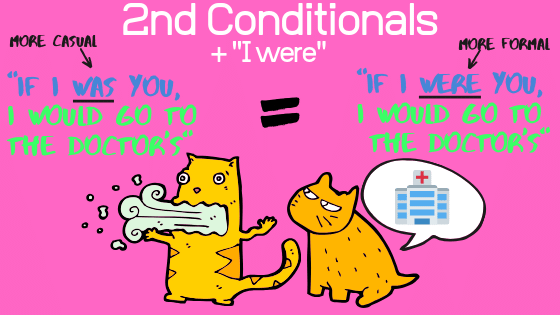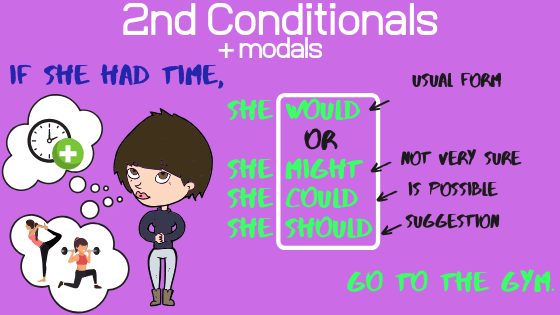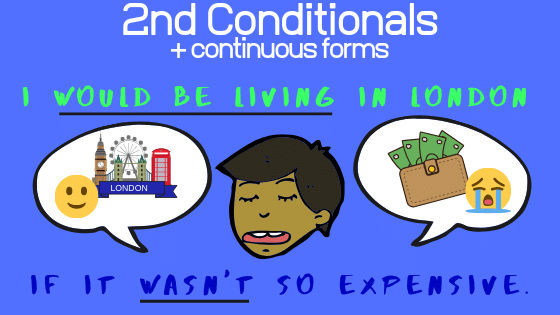[If + past tense] , + [would + bare infinitive]
[condition] [result]
OR
[would + bare infinitive] (no comma) + [if + past tense]
[result] [condition]
Just make sure you use the correct pronouns so that the subject of the sentence is still clear. For example:
If I was rich, I would travel the world.
[condition] [result]
OR
I would travel the world if I was rich.
[result] [condition]
Here, the meaning is that the person speaking isn’t rich now, and believes that becoming rich is possible but probbly not going to happen, it is an imagined / hypothetical situation.
Using “I were” instead of “I was”
in the 2nd conditional
Note: When “I” is the subject we often use “I were” in conditional sentences as opposed to “I was,” especially when writing, as it sounds more formal. For example:
If I was you, I would go to the doctor’s
[condition] [result]
OR
If I were you, I would go to the doctor’s.
[condition] [result]
Here, the meaning is that the person speaking isn’t rich now, and believes that becoming rich is possible but probably not going to happen, it is an imagined / hypothetical situation.
Using other modals instead of “would”
in the 2nd conditional
Note: It is also possible to use other modals such as “could,” “might,” and “should” in place of “would” in the 2nd conditional. Changing the modal changes the degree of certainty or the tone of the sentence, with “might” being not very sure, “could” being about 50/50 and “should” being used for making suggestions.
Using the continuous form
in 2nd conditionals
Note: It is also possible to use the continuous form to talk about unfinished or continuous actions / states that would result from the improbable/hypothetical conditions described by 2nd conditional sentences. The structure is the same in the condition part with “If” followed by the simple past, while the result part takes “would” followed by “be” and the verb in the continuous form:
[If + past tense] , + [would + be + verb-ing]
[condition] [result]
OR
[would + be + verb-ing] (no comma) + [If + past tense]
[result] [condition]
For example:
Here, the action of living in London would have started in the past and would still be continuing now if the condition was true, which, unfortunately, it isn’t, as living in the capital usually costs a lot of money.





No comments:
Post a Comment